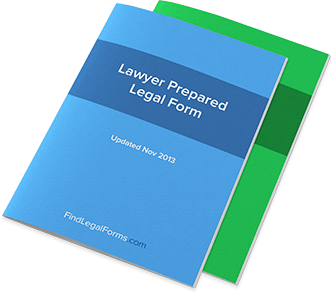General Power of Attorney Legal Forms

Forms
Power of Attorney FAQ
What is a Power of Attorney?
A Power of Attorney is a legal document whose sole purpose is to authorize one individual to act on another’s behalf. The creator of a power of attorney is known as the Grantor or Principal (hereafter referred to as the "Grantor") and the person receiving its powers is known as an Agent or Attorney-in-Fact (hereafter referred to as the "Agent"). Some Powers of Attorney also allow a successor to be named in the event the original Agent is unable to act on the Grantor's behalf.
Once a Power of Attorney is in effect, it creates an agency relationship between the Grantor and the Agent until the Power of Attorney is revoked, expires or upon the death of the Grantor. However, different Powers of Attorney vary in the types of powers that are granted.
What types of Powers of Attorney are there?
There are numerous types of Power of Attorney forms including, but not limited to:
- General Power of Attorney: allows the Agent to handle all of your business, financial, health and legal affairs during the period of time designated by you. This Power of Attorney gives sweeping powers and should be entered into only after careful consideration.
- Durable Power of Attorney: allows the Agent to handle your affairs in the event you become disabled or incapacitated. This Power of Attorney remains in effect until it is revoked or the death of the Grantor.
- Durable Power of Attorney (Effective Immediately): allows the Agent to handle your business, financial and legal affairs immediately upon signing (not when you become incapacitated). It remains in effect until it is revoked or the death of the Grantor.
- Power of Attorney for Health Care: is limited in scope because it allows the Agent to only make decisions that affect a Grantor's health and well-being.
- Power of Attorney for Real Estate: allows an Agent to make decisions solely regarding the purchase or sale of real estate.
- General Power of Attorney with Specific Termination Date: allows the Agent to handle your affairs but terminates on a specified date. This type of Power of Attorney is often used by individuals who travel for business or single parents who must leave their children in the care of others.
What is a Statutory Power of Attorney?
A Statutory Power of Attorney is based on language contained within a specific state statute.
When does a Power of Attorney become enforceable?
Most Powers of Attorney become enforceable upon execution by the Grantor. However, each state has its own requirements regarding execution and enforcement of the document. Many states require that the document be signed in the presence of a notary and two witnesses while others require only one witness.
If a person is incapacitated and a Power of Attorney does not exist, then the Agent may ask a court to impose conservatorship on behalf of the Grantor.
There is no prerequisite to have a Power of Attorney filed in a court in order for it to be enforceable. If the Power of Attorney is drafted and executed in accordance to applicable laws, then it is an enforceable and legally binding document.
Should I let my family or other individuals know that I have given Power of Attorney to another?
If appropriate, the Grantor can inform family members or other interested parties that a Power of Attorney has been signed and that specific powers were given to the Agent. However, if the Grantor is incapacitated or unable to do so, the Agent needs to disclose the existence of the Power of Attorney to interested third parties.
When is a Power of Attorney in effect?
When a Power of Attorney will take effect is determined by language within the Power of Attorney itself. The Power of Attorney can become effective either immediately or through a springing effect.
The Immediate Effect means the Power of Attorney becomes effective on the date of execution of the Power of Attorney.
The Springing Effect means a Power of Attorney becomes effective when a specific event occurs, such as the Grantor's disability, illness or injury.
How can a Power of Attorney be revoked?
The Grantor can revoke a Power of Attorney in several ways: (i) by enforcing and fulfilling the revocation provision in the original Power of Attorney document; (ii) by signing a separate document stating that the Grantor now revokes the powers previously granted to the Agent; or (iii) by drafting a new Power of Attorney that will revoke any and all prior written Powers of Attorney.
What is the effect of revoking a Power of Attorney to third parties?
Typically it is the Agent's responsibility to disclose any revocation of a Power of Attorney to third parties that may be affected. Until such revocation is disclosed, the Power of Attorney is deemed to be in effect.
When is a Power of Attorney terminated?
A Power of Attorney is terminated at the time of expiration, revocation or upon the death of the Grantor (although some Power of Attorney powers may survive the death of the Grantor).
